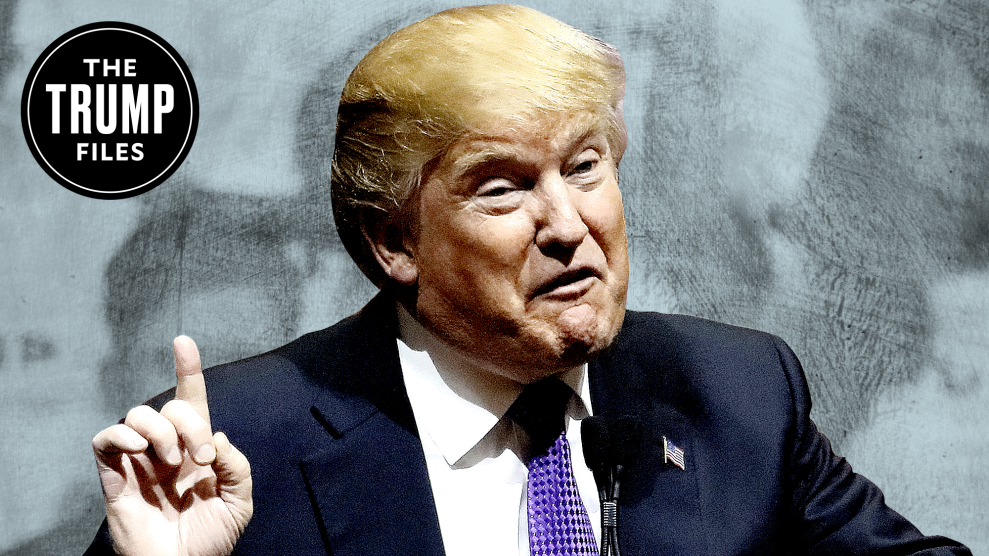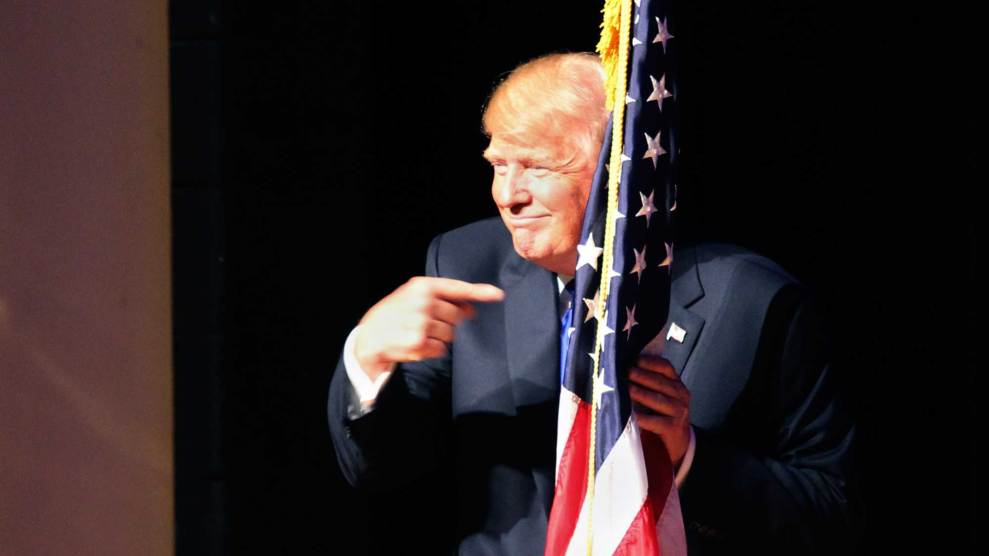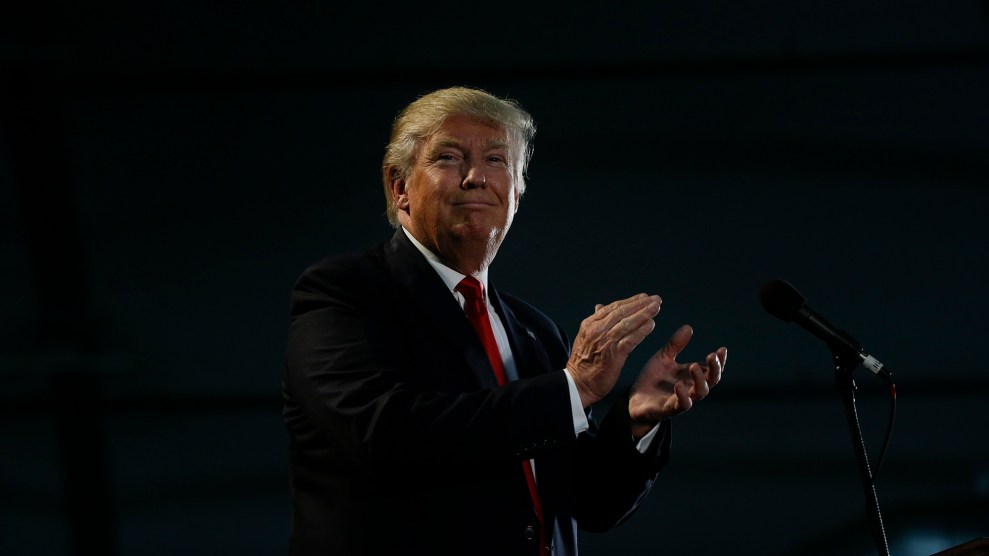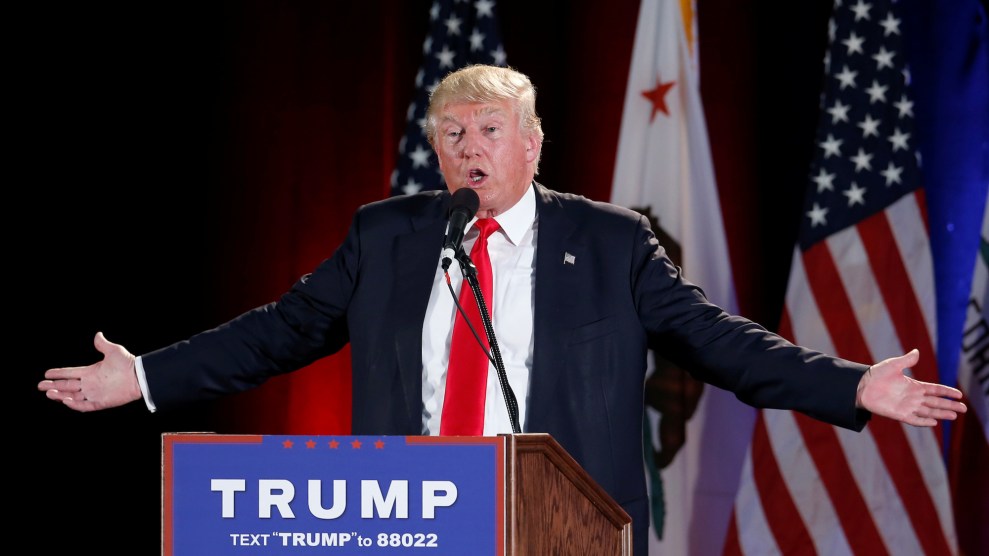
Mother Jones illustration; Shutterstock
This post was originally published as part of “The Trump Files”—a collection of telling episodes, strange but true stories, and curious scenes from the life of our current President—on June 13, 2016.
Intelligence and homeland security agencies already get big chunks of the federal budget, but Donald Trump still thinks they need more resources. So in 2000, he proposed that Americans pick up the tab for a bigger national security budget—using lottery tickets.
At the time, Trump was running for the nomination of the Reform Party, the party founded by Ross Perot and later joined by Pat Buchanan and former wrestler Jesse Ventura. In his campaign book, The America We Deserve, Trump complained that the United States wasn’t serious about its spies. “We need to train and employ a lot more of them,” he wrote. “We need to be shelling out a lot more money for what the experts call ‘human intelligence.'”
And where to get that money? The lotto. “I bet if I started a national-defense lottery, with money earmarked for preventing terrorism against U.S. cities, we would take in enough money to hire and train every spy on earth and still have money to spare,” he mused. “Imagine this for a second: The (Trump) National Security Lottery would sell tickets just like in a Powerball Lottery, but dedicate every cent to funding an antiterrorism campaign. Talk about a good reason to buy a lottery ticket.”
Unfortunately, lotteries have a pretty mediocre record of actually raising money for the government agencies they’re supposed to fund. NBC News estimated in 2012 that 72 percent of every Powerball dollar goes somewhere other than a government budget. At that rate, the proceeds from every Powerball ticket ever sold in its 24-year history would, in total, net about $16 billion for new spies—which is what the government already spent on counterterrorism in 2013 alone. (Data that year was leaked, so we can’t see the details of more recent intelligence budgets.) Sad!



















